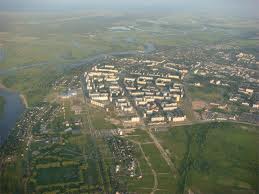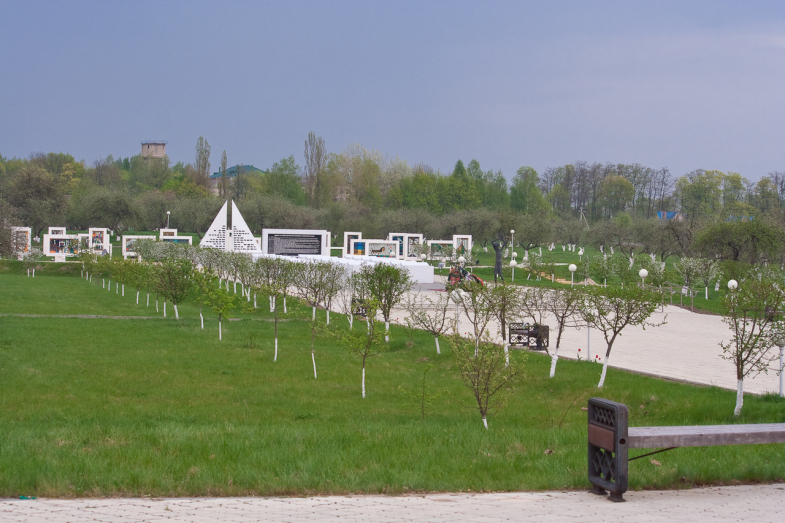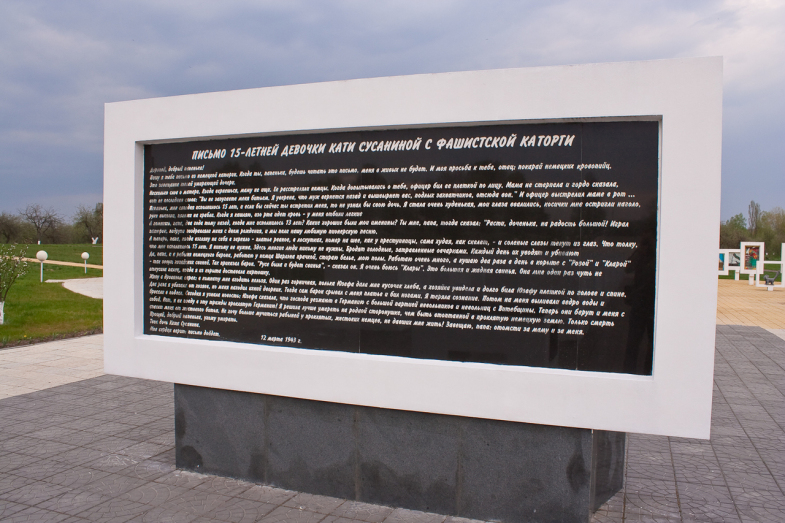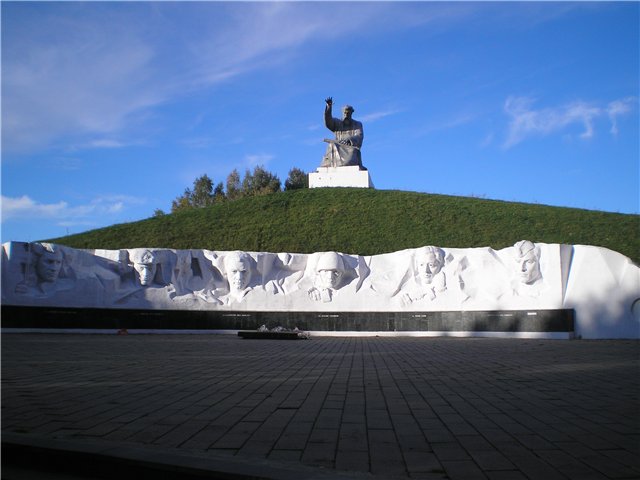 It
happened so that in the beginning of May I visited some of my relatives in
Belarus in a small town called Zhlobin. And for me this vacation was
really something special. Unexpectedly for me it all turned to be devoted
to the Victory Day. It
happened so that in the beginning of May I visited some of my relatives in
Belarus in a small town called Zhlobin. And for me this vacation was
really something special. Unexpectedly for me it all turned to be devoted
to the Victory Day.
I found the town very pretty, green and extremely clean. It was all
decorated with flags, thematic pictures and beautiful flowers. One evening, when we were having dinner, my aunt started
talking about her childhood . She was born in 1941. During the War her family
was evacuated from the Far East to Siberia and they had to stay with some of
their relatives. Her family had almost nothing to eat. But the host family was
quite rich and had some sacks of grain in their house. So time and again my
aunt’s mother had to scratch some grains from the sacks to feed her children.
Once the host noticed that there was less grain in the sack that it
should have been, and she told about it to my aunt’s mother. Her answer was:
"You may beat me as hard as you want but it doesn’t matter to me because
all I need is to feed my children”. 
The next day the weather was not very good but we went on a car tour
around the town. We were taken to a place called "Krasny Bereg”.
This memorial for Belarusian children – the victims of nazism made a deep
impression on me. There one can see school desks as many as a normal classroom
can house and a blackboard. They are placed in the open air, between the
forest and the apple orchid. "One of the concentration camps for
children was situated here during the War. For those children whose blood the
Nazi took for their soldiers of Wehrmacht , and those who survived were sent
to Germany to work. This memorial is in memory of children who struggled the
nazi hell and died . In memory of children who had no childhood, children who
will never take their sits at their desks, children who will never draw their
future.” – says the note at the memorial. The
Nazi brought over 1900 children from the neighboring towns to Krasny Bereg.
There were over 260 concentration camps for women and children in Belarus.
On the blackboard there is a letter of a fifteen year old girl Katya
Susanina from Belarus who was a German Nazi slave for the 1943. This letter was
found inside a broken Russian ‘pechka’ after the city of Liozno was cleared
from Nazi invaders in 1944. This girl was so desperate that in the day of her
15th birthday she decided to kill herself. Before
doing this she wrote a letter to her father. On the envelope she wrote:
"Dear man or woman, who ever finds this letter hidden from the German
fascists, please, as soon as you find my letter, mail it to my father. By
the time you find it, my body will be already hanging dead on the rope.” This letter brought tears to
my eyes. 
What I liked about Belarus is that they love their country and the policy
of the government is aimed at making people be proud of their country. They
respect and value their history. Every teen that turns 16 years is greeted with
a huge beautiful book about Belarus. Almost everything about the country of
Belarus can be found in this book even the Belarus cosmonauts. On our way to Mogilev we stopped at the Village Luchitsy to observe a
great monument devoted to 6 soldiers – 6 heroes of the Soviet Union. On top of
the hill there is a huge figure of guslar glorifying their great dids. 
When I got on
the train to Moscow everywhere was the sound of the old songs about the Victory
Day. And I felt even more solemn. The thing that stroke me when I got to Moscow on the 9th of
May was a very old Veteran on the Belarus train station. Obviously he was
coming back from The Parade on the Red Square. He was moving really slowly
because he was really old (just like all the veterans who are vanishing as
years pass by) and he seemed to be lost. Why if he was invited to the Parade
and if we (as we claim) are proud of what he did and grateful to him for his
acts of bravery, why those who invited him couldn’t make sure that he
gets home safe? Doesn’t it really mean anything to us? I remembered my mother saying: What will happen when there will be no
veterans to tell us about the War, what will happen? Will there be another
history? Will it all be forgotten? written by Anna Simonova
|